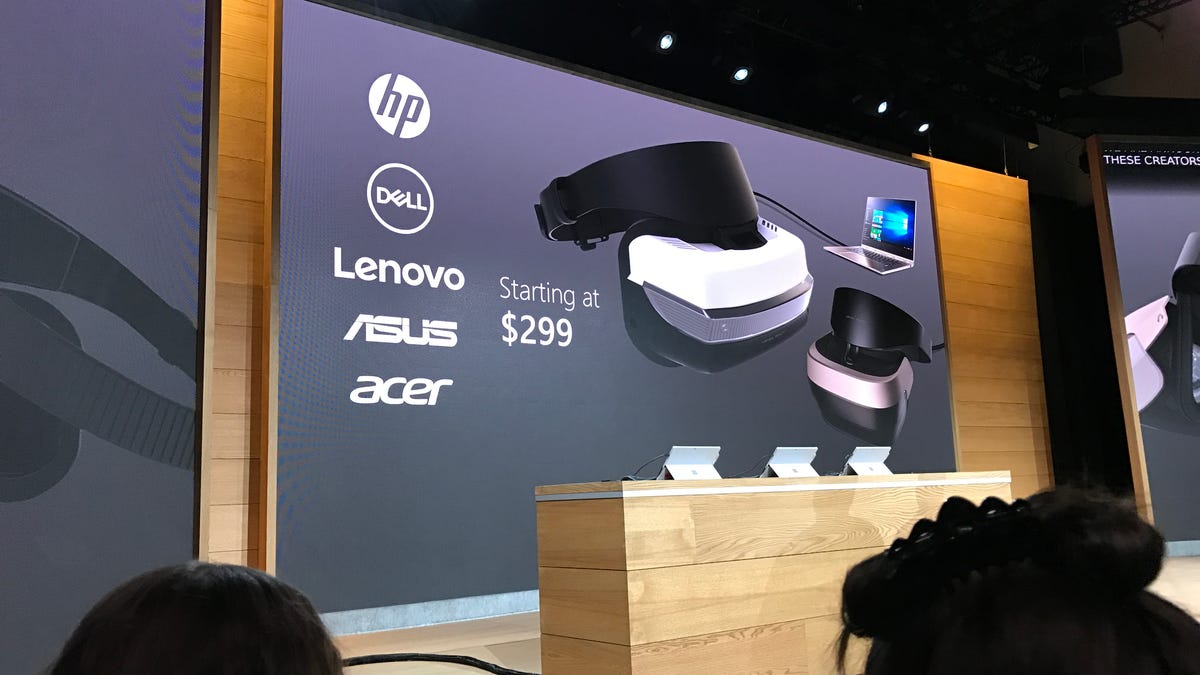Upcoming third-party Windows VR headsets will use HoloLens tech
No external sensors will be needed, and the headsets could boast better-than-Oculus-Rift resolution.

There'll be a little bit of HoloLens in these upcoming VR headsets.
Microsoft announced a wave of Windows 10-compatible VR headsets coming next year, and they're going to be powered with technology derived from its HoloLens system.
A Microsoft representative confirmed that the headsets, arriving early next year from a handful of third-party partners (Asus, Acer, Dell, HP and Lenovo), won't need any external sensors or cameras. They'll track everything, including motion in the room, directly from the headset. And we also learned that that tech is, indeed, HoloLens-related technology.
The HoloLens uses its own cameras to allow "six degrees of freedom," meaning you can walk anywhere in a room. And while the upcoming Windows VR headsets will need to be tethered to a PC with at least one cable, that HoloLens tech means that the new headsets will not need external sensors, cameras or light boxes that enable "room scale" VR. By contrast, current VR hardware such as the Oculus Rift , PlayStation VR and HTC Vive does.
Related Links
These headsets, then, will also have cameras. Whether or not they can capture images or mixed reality isn't clear. Our source wouldn't confirm whether these headsets will work with Microsoft's Project Scorpio game console, which is slated for late 2017.
But these headsets will be compatible with things like keyboards and mice -- and, even, your hands. Much like the HoloLens, these VR headsets will be capable of hand-tracking.
How will the display resolution be? According to our source, expect something "even better" than the Oculus Rift.
One thing to consider, though, in case you were thinking of waiting for a Windows 10-compatible VR headset: these headsets may not be compatible with Oculus' software, or even the HTC Vive's Steam apps. They're going to require Windows VR apps, which right now don't really exist. Whether or not these headsets, and Microsoft's VR ecosystem, can support another VR ecosystem remains to be seen.

